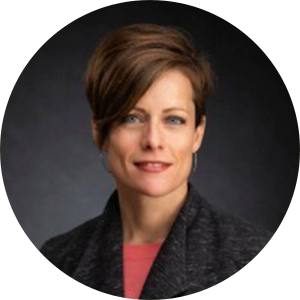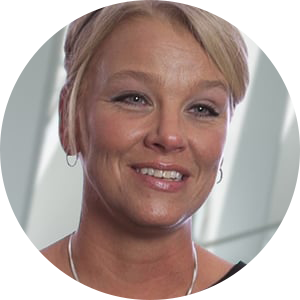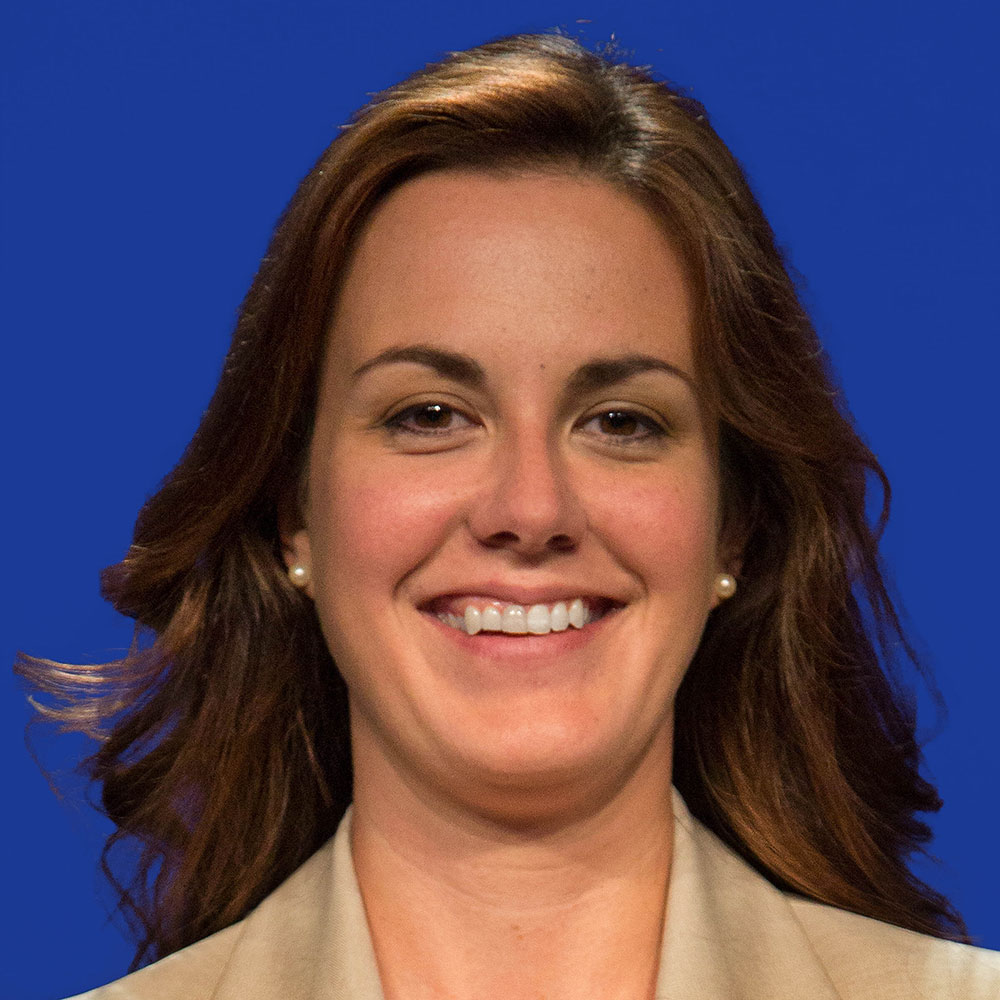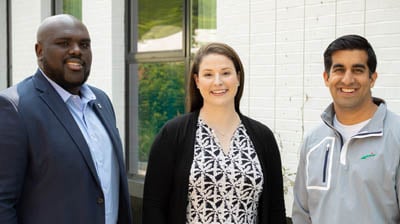As we close out Women's History Month, we wanted to celebrate women who are making a difference in technology. Today, there are organizations like Girls Who Code and more technology-based curricula that encourage young girls and women to pursue technical careers, but that didn’t exist when many of today’s women in tech entered the field.
I recently interviewed three women in insurance technology who shared their journeys with me – IVANS Product Manager Heather Prabish, Bankers Insurance VP of Systems Support Christine Horne, and Westfield IT Middleware and Development Leader Bobbie Altman.
Find out how these women got into the field, what they see for the future, and advice they would share with the next generation of women in technology.
“Nurturing confidence in young girls can't be emphasized enough. Guiding them is an important piece of the puzzle so they can hold their own with a group of technical people who are often very logically-minded and direct in their interact.”
 Bobbie Altman
Bobbie AltmanIT Middleware and Development Lead
Westfield
What made you decide to go into the tech field?
Bobbie Altman: Going into college and not knowing exactly what I wanted to do, I chose IT for a couple of reasons – there would always be something new to learn, and there were many different roles in the field. I was right about that, but now I realize I was drawn to it because I enjoy solving puzzles and thinking about how things work. I started as a developer and was always drawn to the user interface side of the work.
I explored user experience design very briefly, but ultimately, I was asked to take a management position by a mentor/boss and have been in a leader/manager role for almost 15 years. In hindsight, having that boss ask me to take a manager role was pivotal in my career.
Christine Horne: I'm not sure I selected technology or if technology selected me. My father was an insurance producer and recruited me to the industry. After becoming licensed, I worked primarily in Employee Benefits with my dad and another producer.
After our agency was bought along with about eight other agencies, I was asked to be part of a working group to develop new workflows and merge several agency management systems. I just fell in love with it and learned everything I could about technology that we had at the time. Shortly after that, I was promoted to system support manager, and my role has grown since then.
Heather Prabish: I fell into the technology field by accident. I started in early childhood education, working with children with severe autism. As a student, I needed a job that paid better and found myself working in market research. Then I moved to join the software company that built a program we used heavily in my department.
What have been the challenges for women in technology?
Bobbie Altman: I was surprised to see a statistic that women in computer-related degree programs dropped significantly in the mid-1980s, which correlated to computing toys marketed to boys. Throughout my career, it has been a regular occurrence to be the only woman in a room or on a team. I think that can create an intimidating environment.
While I did not grow up playing with technology, I did grow up in a family that did not apply typical gender stereotypes to toys and activities. I think it's important to encourage children to explore their interests without applying old-school gender stereotypes.
I think the candidate pool of women in technology is still many years behind men. The good news is that I'm seeing it advance through coding boot camps, programs specifically aimed at STEM activities for girls, and other efforts by organizations to reach school-age girls.
Christine Horne: I have seen challenges with women not having their ideas taken seriously or embraced over the years. It can at times still seem like a male-dominated industry. I have had to challenge myself to be willing to speak up, trust my knowledge and my skills, and not talk myself out of participating or letting anything deflate my excitement and passion around what I do.
“I've been fortunate to have so much support and encouragement from my team and colleagues within my agency. I wish that every woman interested in technology had the chance to have the journey that I've had.”
 Christine Horne
Christine HorneVP of Systems Support
Bankers Insurance
Heather Prabish: I think the challenges women face in technology are the same that have challenged women and minorities in society at large. Underrepresentation and lack of access, mentoring, and highly visible role models.
There's been fascinating research into environmental cues that remind us of our identity and how we use these external cues to regulate our internal selves. When we see cues in office spaces or university departments that we cannot connect with, it signals we do not belong. It extends to people too. If we do not see women in top leadership, it signals we do not belong.
Do you think women are underrepresented in tech?
Bobbie Altman: I'm fortunate to work at a company where women in IT leadership is commonplace. However, women in architecture and development are still under-represented, so I see the statistics play out. I agree with encouraging girls to explore STEM concepts through play at an early age. I also think Girls Who Code is addressing another important factor by making sure girls are mentored by other girls and maybe have their friends join them in technical hobbies.
Christine Horne: It is still true. I think we need to do more to encourage each other and our daughters. I can remember what it was like as a kid when I was terrible at sports but loved reading, history, science, and math – anything that challenged my brain. I got picked on because I was awkward or boring. That was miserable at times, but I had a grandfather who taught me things like building an electrical circuit, a father who encouraged me to be brave, and a mom who frequently told me I could be anything I wanted to be.
I had a community that surrounded me with confidence, acceptance, and encouragement. Both men and women need to build communities for girls and challenge them to strive even when it's hard. Encourage them to be different and show them it's okay when they are.
Heather Prabish: Yes, it is still true, sadly. Women make up only about 25% of the technology workforce and have a quit rate at twice the rate of men. We need to start with making sure the women who are in tech have the mentorship and opportunities to advance into leadership roles.
“We need to make it normal for young girls to be interested in science and technology. Stereotypes will always exist. We will know when we have reached equal representation when the default person for a technologist matches the attributes of the person imagining the role.”
 Heather Prabish
Heather PrabishProduct Manager
Ivans
How do you see the future of insurance changing for women?
Bobbie Altman: I can say that the field of insurance has changed a lot since I've been in it, and I'm encouraged by the focus on diversity. I think that women have a stronger voice, and it’s still getting stronger – as well as for people of color.
Christine Horne: I see more female leaders, agency owners, IT directors, producers – there's no limit to where women can go in the insurance industry.
Heather Prabish: I would love to see more women in insurance in senior leadership roles and break the $100,000 - $119,000 salary barrier. Sixty percent of women in the insurance industry workers are women, yet women hold only 29 percent of senior leadership positions.
What advice would you give to the next generation of females in tech?
Bobbie Altman: Be confident and learn from your mistakes, unapologetically. Remind yourself that you don’t need to have every single qualification to apply for that role and trust yourself to learn along the way. Go for it!
Christine Horne: Work hard, learn as much as you can and never stop learning, embrace the challenges, put in the effort, believe in yourself, and don’t be embarrassed to share your ideas.
Heather Prabish: Work harder than you think you are able. Be kinder than you think you ought. Be more generous than you think you can afford. It's more a recipe for life than it is for a specific field or career. People make mistakes. They have biases and beliefs that unconsciously impact their behavior.
Few people go through life wanting to be a jerk. Give people the benefit of the doubt and help them be better. I believe each person has so many gifts to share with the world. When given the opportunity to share, share with gusto. Take advantage of those opportunities to help others shine.
Breaking the Bias
This year’s International Women’s Day theme was #BreaktheBias. These three women are paving the way for girls interested in technology and helping to break the bias in our workplaces and industry.
-

Christen Kelley
VP of Marketing for Ivans
Christen Kelley leads Ivans' overall marketing strategy. She brings more than a decade of insurance technology experience to her role. Kelley holds a master's degree in Communication and Information Technology from Bay Path College, and a bachelor's in Business Administration from Bryant University.


